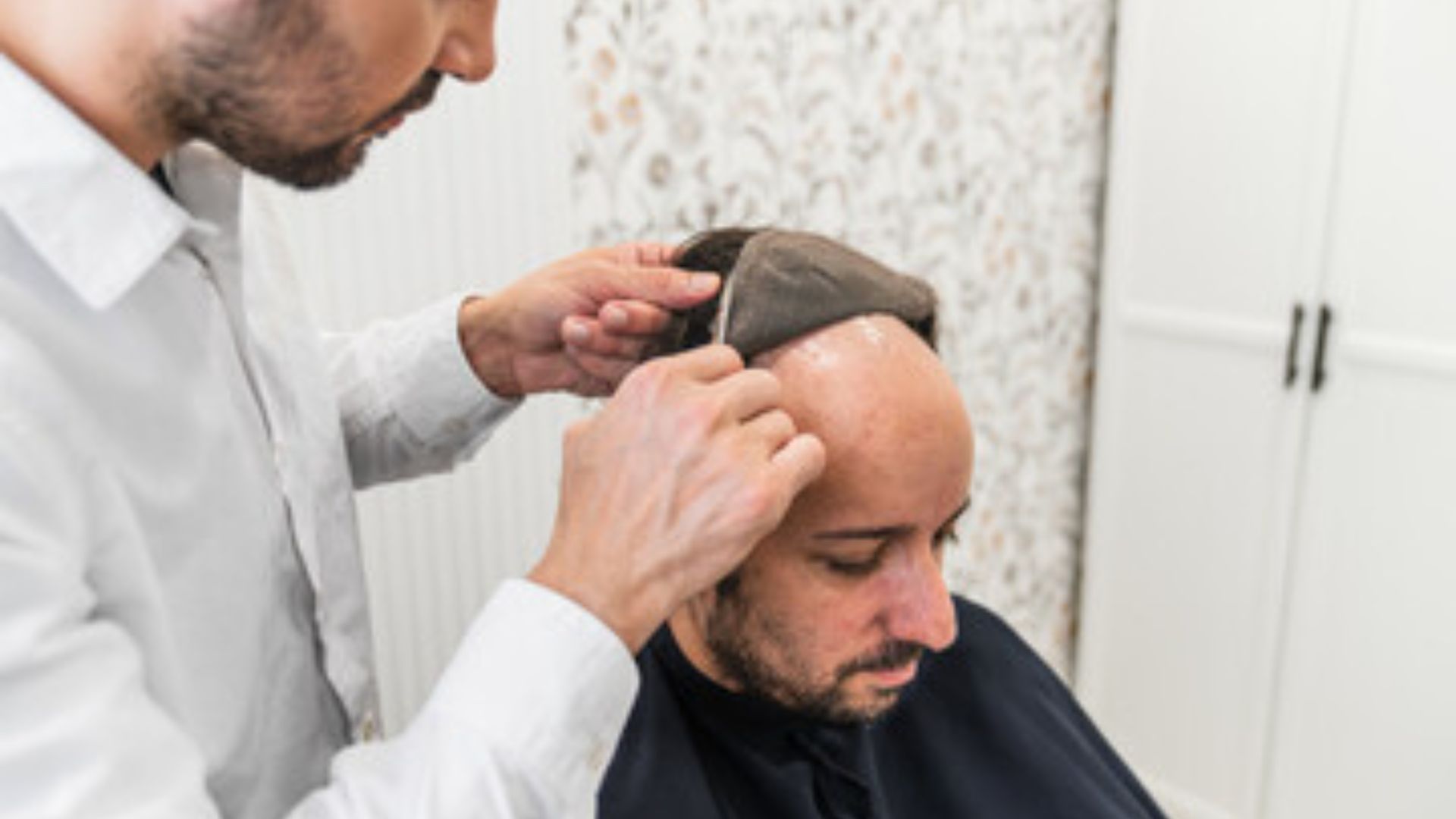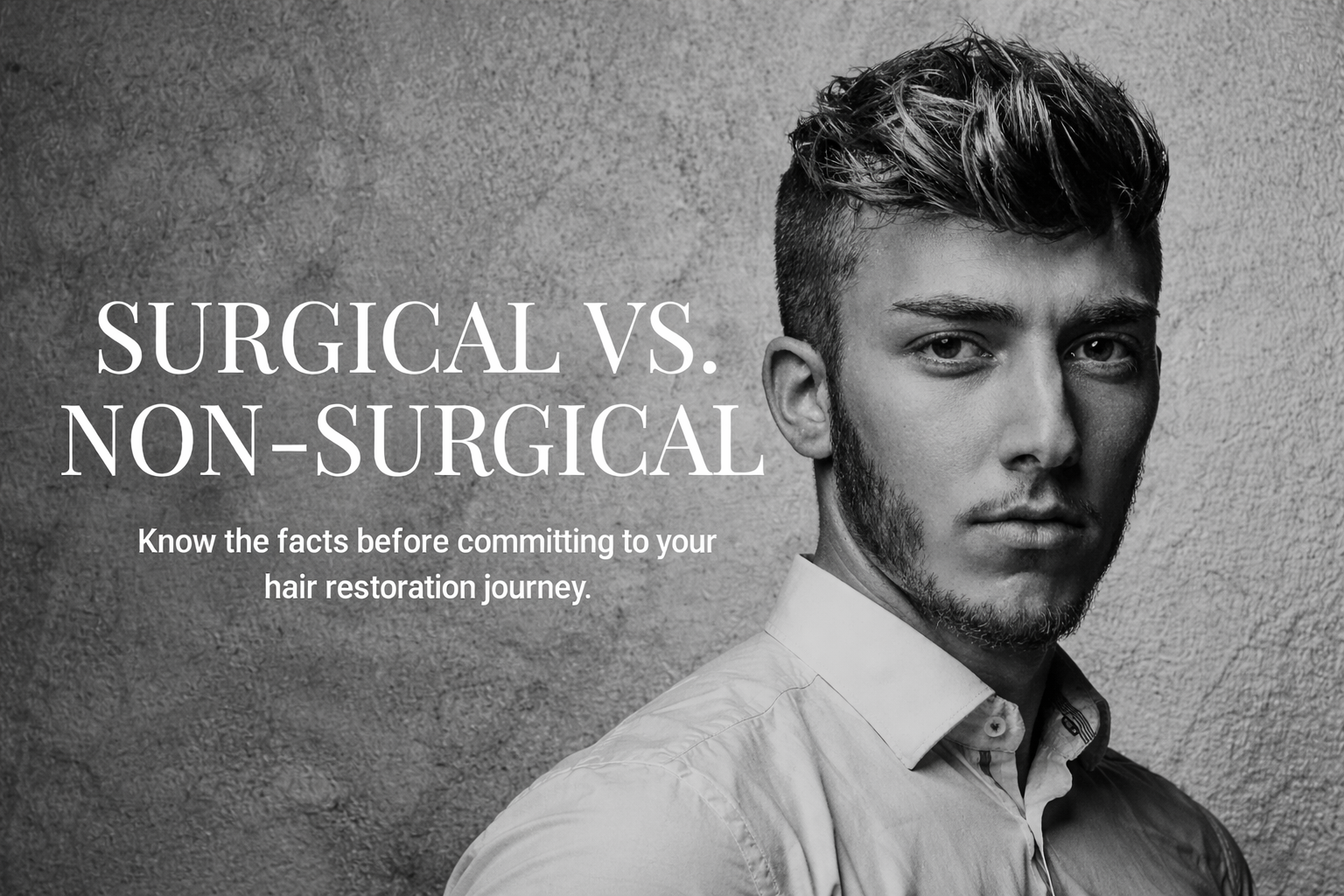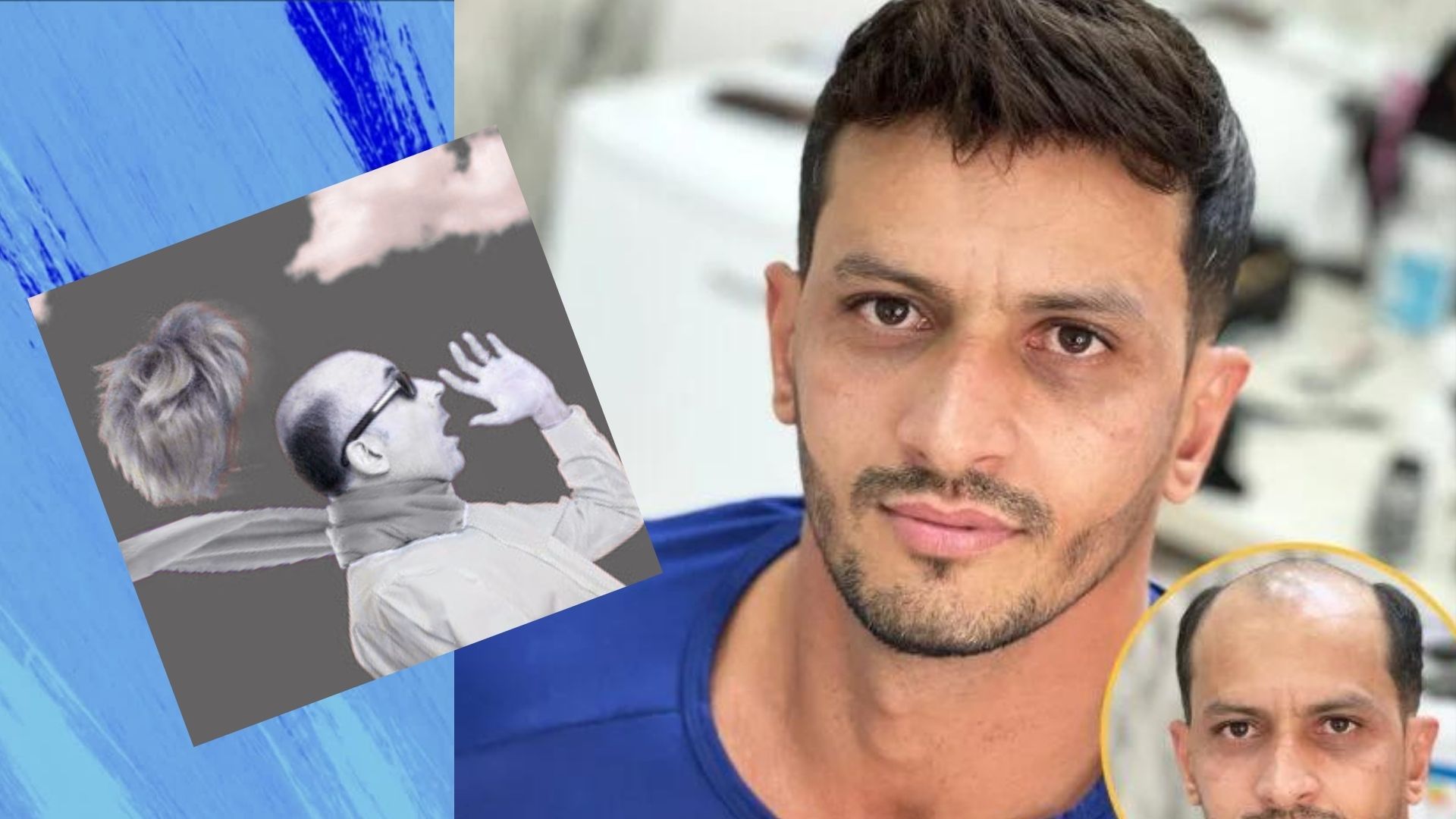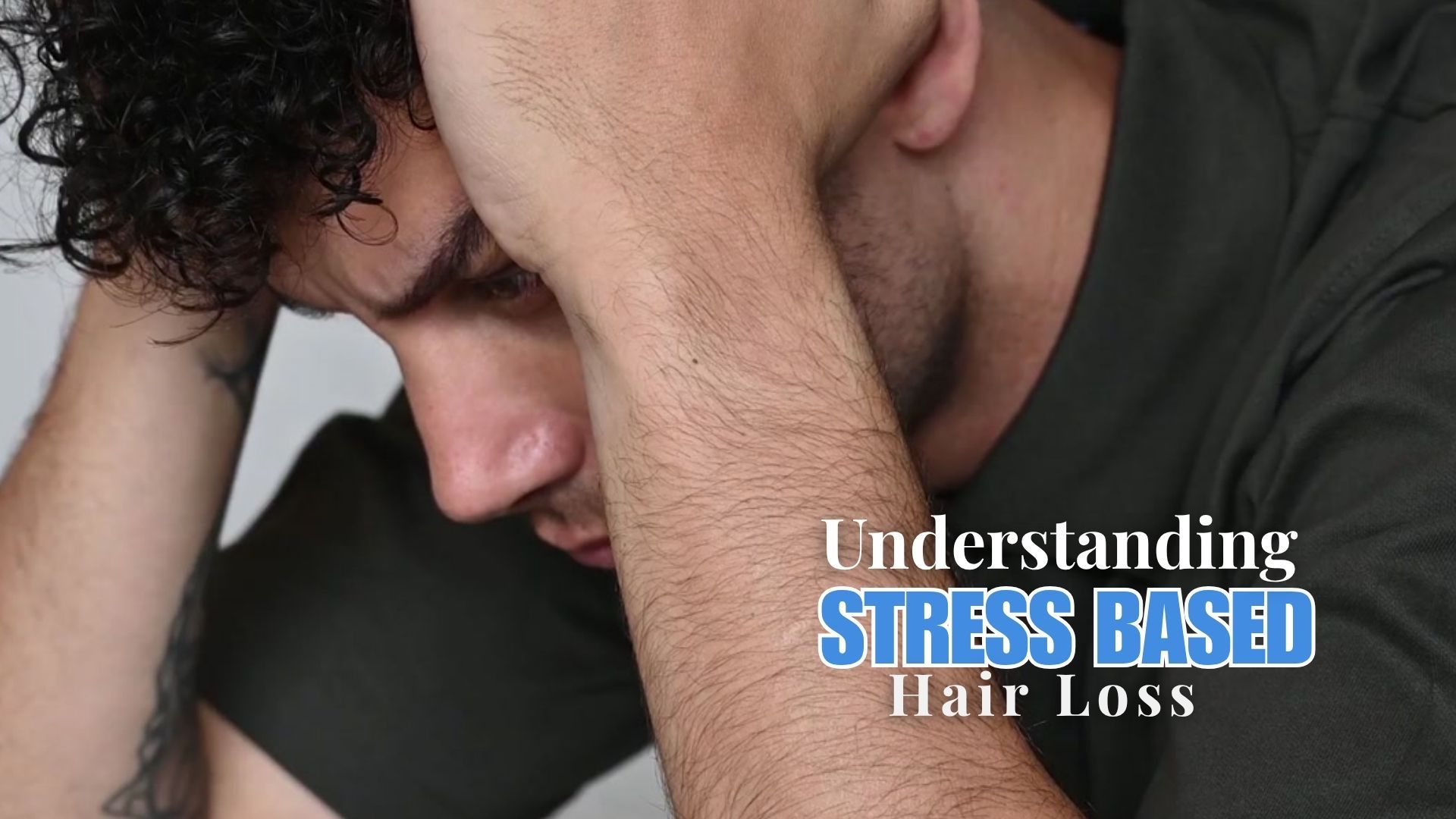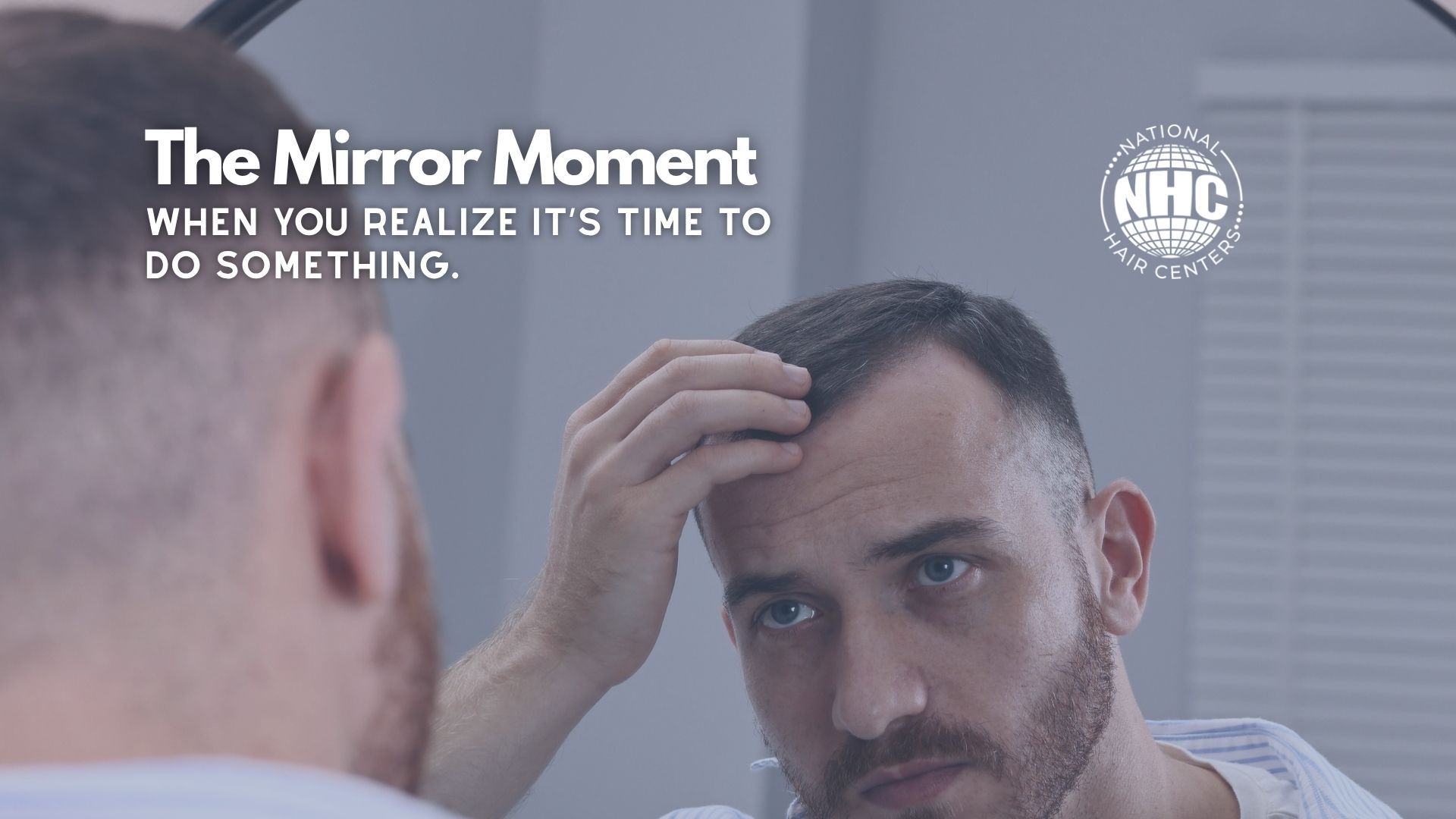Sleep, Stress & Hair Loss: What Science Says
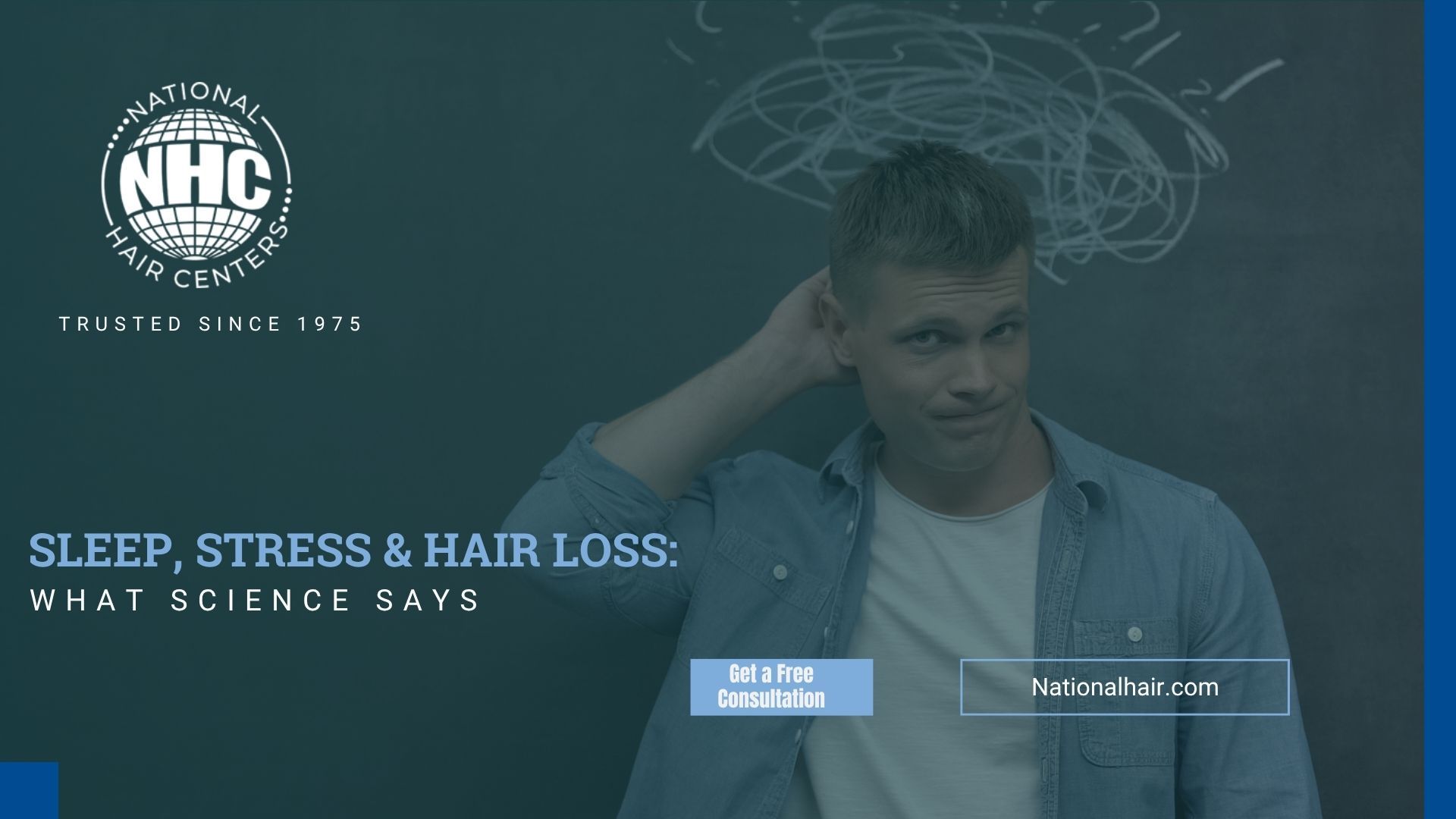
It started during a chaotic season—late nights, tight deadlines, and a constant loop of stress..
You weren’t sleeping, you were anxious all the time, and one morning you noticed it: more hair in the brush, a wider part line, a receding edge you swore wasn’t there the month before.
Could your lifestyle really be showing up in your hair?
Turns out, yes. Science is increasingly clear that stress and sleep deprivation can contribute to hair loss, sometimes dramatically. Let’s look at what’s really happening in your body—and what you can do to take back control.
Can Stress Cause Hair Loss? Yes—And Here's How
When you’re under chronic stress, your body shifts into survival mode. This triggers hormonal changes and inflammatory responses that can impact your hair cycle.
According to the Cleveland Clinic, one of the most common types of stress-related hair loss is telogen effluvium, where a large number of hair follicles prematurely enter the shedding phase. This can cause noticeable thinning just weeks after a stressful event or prolonged anxiety.
High stress levels also raise cortisol—the body’s primary stress hormone. Elevated cortisol can disrupt the balance of other hormones, reduce hair growth signals, and even shrink hair follicles.
A 2021 study in Nature found that chronic stress depletes the stem cells responsible for hair follicle regeneration in mice, suggesting a possible biological link between stress and long-term hair loss.
Can Lack of Sleep Cause Hair Loss?
Yes. While sleep alone doesn’t directly cause hair loss, poor sleep quality and sleep deprivation can make existing hair loss worse—and trigger new issues by weakening your body’s ability to heal and regulate key systems.
Sleep is when your body repairs itself, balances hormones, and regenerates cells.
Without adequate rest:
- Cortisol remains elevated longer
- Growth hormone levels drop
- Nutrient absorption may decline
All of these factors can compromise scalp health and the hair growth cycle.
The National Sleep Foundation recommends 7–9 hours of sleep per night for adults. Consistently getting less than that can impact not just energy and focus, but also hair growth and skin health.
Mental Health and Hair Loss: The Hidden Connection
Your mental and emotional wellbeing affects every system in your body—including your hair.
Anxiety, depression, and chronic stress have been linked to inflammation, poor sleep, and hormonal imbalances. Together, these can worsen existing hair thinning or trigger conditions like alopecia areata, where the immune system attacks hair follicles.
If you’ve been feeling overwhelmed or emotionally burned out, and you’re seeing hair changes—you’re not imagining the connection. And you’re not alone.
What You Can Do Now
The good news? Hair loss from stress and sleep issues is often temporary and reversible once the root cause is addressed. Here’s where to start:
- Prioritize sleep: Build a wind-down routine, cut screen time before bed, and aim for 7–8 hours.
- Manage stress: Try mindfulness, movement, or therapy—whatever helps you process and decompress.
- Support your hair: Nourish your body with whole foods, stay hydrated, and consider scalp treatments to stimulate regrowth.
- Get a scalp evaluation: If the hair loss is significant or ongoing, a trichologist can help uncover deeper causes and create a treatment plan.
Sleep & Stress Might Be Stealing Your Hair—But You Can Take It Back
At National Hair Centers in Phoenix, we combine real science, customized care, and compassionate support to help you understand your hair loss and take confident steps forward.
Whether you’re dealing with temporary thinning or chronic shedding, we offer personalized consultations and solutions that fit your life.
📞 Call us today or visit our Contact page to schedule your free consultation.

